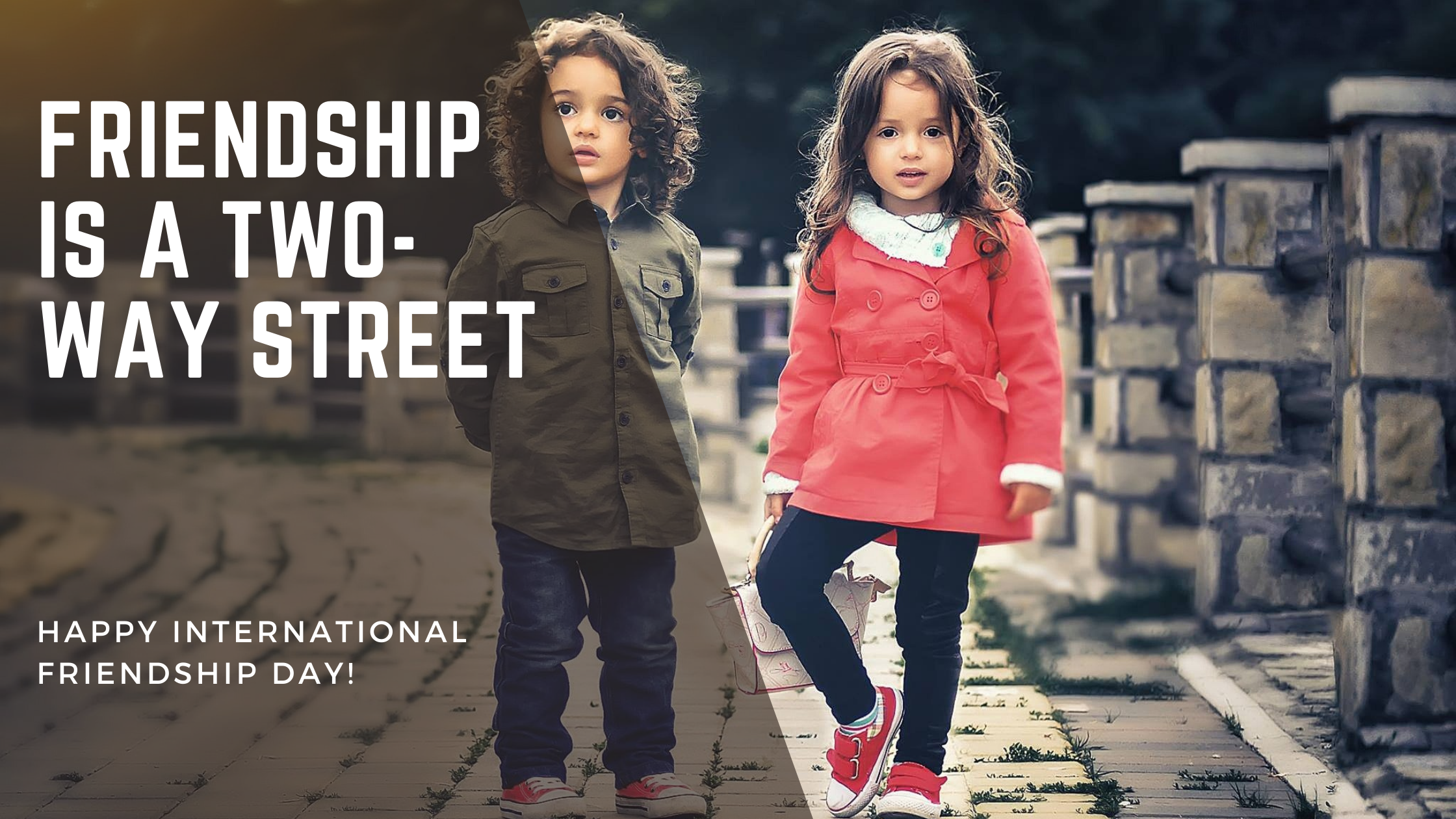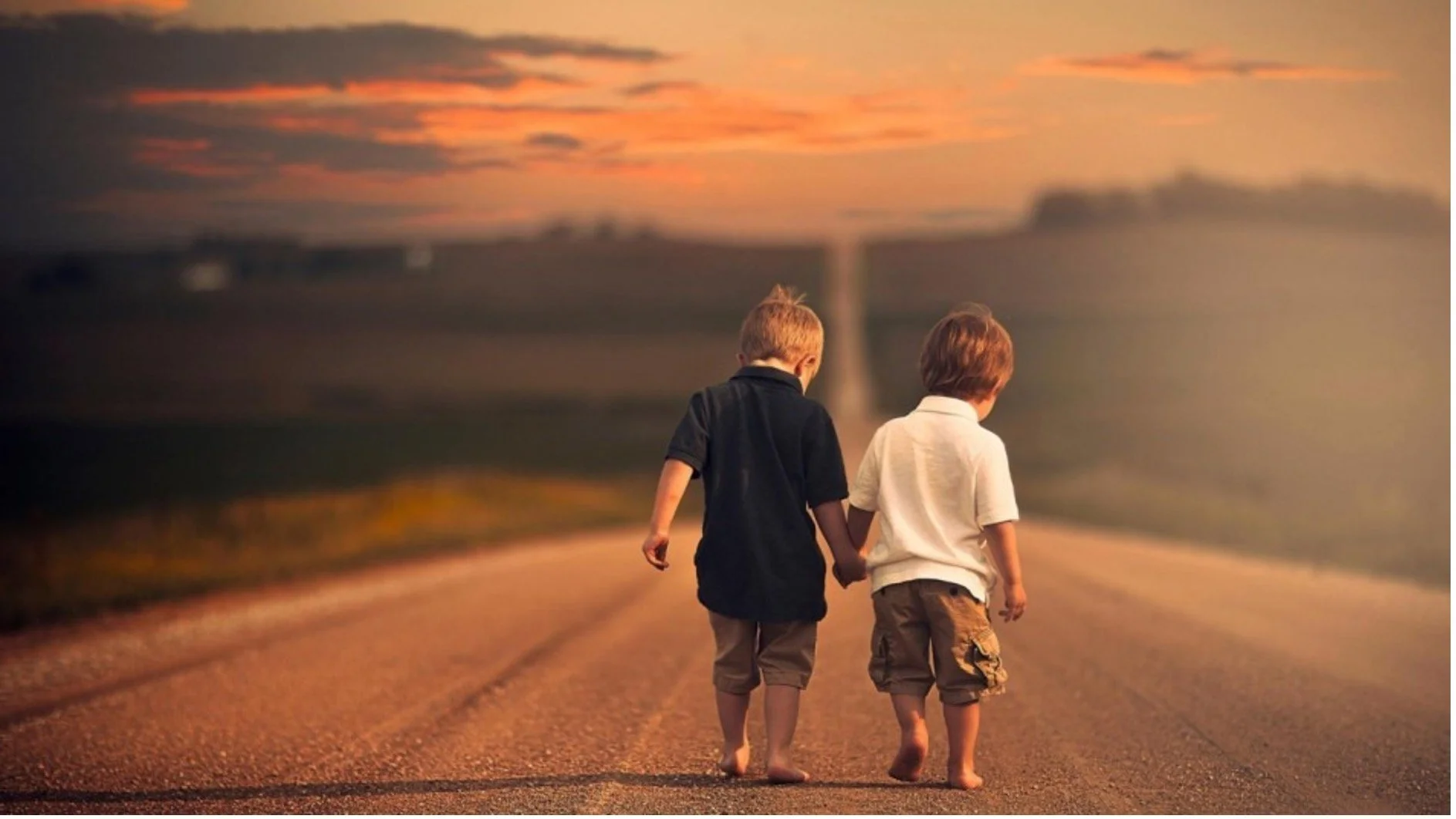Friendship is a two-way street
Social media has many influencers telling us what we should do. But there's one group of people who don't need convincing regarding the importance of reaching out to your friends: those who have been besties for decades. A recent study found that close friendships are more important than ever as we get older, providing physical and emotional benefits. So if you've been meaning to call your BFF from college but keep putting it off, consider this your sign to pick up the phone already. Getting old may be inevitable, but becoming a couch potato is not. According to the study, maintaining close friendships can help stave off a decline in physical activity. So even if you don't feel like going for a walk around the block, give your bestie a call and catch up on old times while you get in your steps for the day. And if you're worried about being a burden, don't be: the study found that people in close friendships felt they could rely on their friends for help and support and that their friends were always there for them. So go ahead and reach out - your friends will be happy you did.
Do you have a close friend you don't see as often as you'd like? Reach out to them today and let us know how it goes in the comments below! And if you're looking for ways to make new friends, check out our post on how to meet people online and/or offline. See, making friends isn't so hard after all.
Bonds that improve mood
According to the TV series "Friends," from assisting you in a crisis to giving you a strengthening mood boost, there are several reasons why your friendships keep you healthy. Endorphins, a stress-reducing chemical produced in our bodies as a result of relationships, stimulate the creation of white blood cells that defend us from bacteria and viruses.
However, the depth of those relationships matters more than their quantity. Having a lot of acquaintances won't provide you with the same advantages as a few strong friendships. Researchers, including Dunbar, surveyed more than 40,000 people aged 50 and over in 13 European nations in 2020. According to the research, having just a few close friends was linked to a decreased chance of depression and improved quality of life. In contrast, there was no evidence that having numerous social ties was advantageous; in some cases, it might even be harmful.
"You're spreading yourself too thinly across all these extra pals if you have more than about five (close friends)," said Dunbar. "And none of them has the same sense of bonding as the others do."
Contact your friends to see how pleased they are with the gift you've given them
According to a study published July 11 in the Journal of Personality and Social Psychology, people frequently underestimate how much their friends and past acquaintances appreciate hearing from them. "If you've been hesitant to contact someone that you'd lost touch with, it's important to go ahead and do so because they're going to appreciate it much more than you might expect," added Peggy Liu, the study's lead researcher.
To see if people may accurately evaluate how much their friends value contact and what types of communication have the greatest impact, researchers conducted a series of 13 studies with more than 5,900 participants. Calling out was defined as a phone call, text, email, note, or little gift in these experiments.
The research discovered that initiators significantly underestimated the recipient's reaction to the check-in in three out of four cases.
Miriam Kirmayer, a clinical psychologist and friendship expert who was not involved in the research, stated, "It's frequently less about these huge gestures we can make in our relationships and more about the little moments of letting a friend know that we're thinking of them."
When the surprise was appreciated, as it was in this case, some individuals performed better. Friendships and relationships, including love affairs, can make a difference in our health and longevity. They may also improve our well-being on a large scale.
"Those little reach-outs with lower stakes may be a good way to start up relationships, get a friendship off the ground, and keep it going over time," Kirmayer noted.
Do not be concerned about being rejected.
Anna Akbari, a sociologist, explained that friendships need to be fed. However, Anna Akbari was not part of the research and said that a slew of anxieties might prevent us from extending our hands.
To get rid of some of this anxiety, pay attention to automated thought processes that might surface when considering communicating with a buddy and try to push back against them, Kirmayer advised. These patterns might include the notion that one friend values and puts out more effort than another or the belief that a pal does not like you.
Social media for connection
The most recent study did not assess the impact of reaching out on social media sites, while friendship experts have contrasting opinions about how much social media use may influence communications with an old friend. Franco advised checking social media for comments or responses for those who aren't yet ready to text or call their pals out of the blue.
However, social media isn't the most natural type of communication, and it is frequently followed by more superficial discussions, according to Akbari. "We mistake comments on social media postings as personal communication and relationships rather than private transactions," she continued.
While texting or emailing isn't as impersonal as social media, Akbari advised people to call their friends. It might be difficult to pick up the phone and make a call, but she believes the connection will be more genuine.
Instead of having real-time conversations, many people are now used to communicating through text messages, emails, social media posts, and other methods that don't happen quickly enough for them. As a result, they may be uncomfortable with making calls.
"If we're on the phone or in person with someone, we're engaged in a discussion," Akbari added. "You can answer. I may say something. There is no such thing as a delayed 'I'm going to think about it,' or 'I'll come up with just the right thing.'”
Are you not quite there yet? According to Harry Reis, a psychology professor and dean's professor in arts, sciences, and engineering at the University of Rochester, write a gratitude letter. He was not part of the research. According to a 2021 study published in the Journal of Applied School Psychology, practising thankfulness has been linked to "solidified and secure social relationships."
Before diving into anything else, take a look at your relationships
Your friendships may be one-sided at times. You may feel like you're putting in all the effort, yet a friend may not seem to reciprocate the same enthusiasm.
According to Kirmayer, many clients have been concerned that they carry a significant emotional burden regarding their friendships. However, this isn't always the case, she clarified.
"We may sometimes underestimate how much we're doing it for ourselves," she added. "It's also vital to push back against this and notice the minor instances when our pals are reaching out."
How a long relationship is sustained over time
Stan Pell resides at a charity house in the UK, where Fred Mosley also resides. They are connected by marriage, as Pete Mosley and Jayne Pfister became husband and wife after their relationship began.
In 1980, they met through their children and formed a strong relationship that has been able to continue at a care home for veterans and their spouses living with disability or dementia.
Stan and Maureen, who live at the same charity house, became friends after meeting Pete and Jayne. They went on family trips frequently, including two visits to Australia. Stan and Fred loved fishing; they also shared hobbies such as DIY and gardening.
Stan and Fred, aged 96, have been residents at Royal Star & Garter since 2020 and 2021, respectively. Stan was a regular at the nursing home until he died in 2019. He served in the British Army for two years to fulfil his National Service obligations between 1949 and 1951, when he was with the Royal Signals.
Stan Pell and Pete Mosley
Stan cares for Lloyd, who has dementia, while Stan provides general nursing assistance. The pair frequently spend time together at home and on trips. According to Jayne, they are pleased that their relationship may continue. “We met 42 years ago and have been close friends ever since. Amazingly, their friendship has lasted this long at the charity house. He suggested that my mother and father move in with him, so they went ahead and did it. “I think this is one of the most beautiful things I've ever seen,” says O'Loughlin. It's incredible to witness them still together. It's great to see a long and lovely friendship continue - they're having a good time at Home.”
Mary Rogers, the Senior Wellness Coordinator at the charity house, said it's a "pleasure" to see the two together. She added: "You can tell there is a genuine friendship between them; they're more like brothers. "They're just a fantastic team to watch. They have an exceptional connection, and it's great to observe them." "They both like to sit and reminisce about the old days. They like participating in activities such as bowling and curling, and they also enjoy going on excursions."
How can we have effective ties in this day?
The study's authors say that "gratitude interventions" could be useful in social work and public health.
Previous research has shown that gratitude can have several benefits for mental health, including reducing depression and anxiety and increasing self-esteem and life satisfaction.
While the current study did not specifically look at the psychological benefits of gratitude, Kirmayer said she and her colleagues are planning to do so in future research.
"Gratitude is a very positive emotion, and we know from other research that it has several mental health benefits," she said. "Our hope is that by increasing people's awareness of their own acts of kindness, we can also increase their sense of gratitude."
The researchers found that people who reported higher levels of social media users were also more likely to report higher levels of gratitude. People who used social media more frequently were also more likely to say they had helped a stranger in the past month, Kirmayer said.
"This suggests that social media use may be associated with a broader orientation towards kindness and helping others," she said.
The findings held even after the researchers controlled for other factors influencing social media use and gratitude, such as age, gender, income and education.
Kirmayer said the study's findings suggest that social media can be a "force for good" worldwide.
" Social media has often been portrayed as a negative force in our lives, but this study suggests that it can also be used to increase people's sense of well-being and connectedness," she said. "Our hope is that this research will encourage people to use social media more positively."
The findings come as social media companies face increasing scrutiny over their role in spreading misinformation and promoting division. Kirmayer said the study's findings suggest that social media companies could do more to promote positive content.
" Social media companies have a lot of power in terms of what content is promoted and how it's presented," she said. "Our findings suggest that they should consider ways to use that power to promote positive emotions like gratitude."
Do you think social media brings people together or drives them apart? Let us know in the comments. And be sure to share this article with your friends if you found it helpful!
And Happy International Friendship day!






